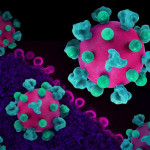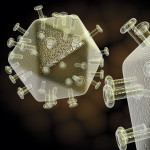GlaxoSmithKline and Shionogi & Co., co-developers of an experimental integrase inhibitor named S/GSK1349572 (GSK-572), have agreed to restrict enrollment in an early clinical trial of the drug, based on concerns raised by European and North American activists. The protocol amendment was announced in an August 13 joint press release issue by the pharmaceutical companies and two activist groups involved.
The European AIDS Treatment Group (EATG) and the U.S.-based Drug Development Committee (DDC) of the AIDS Treatment Activists Coalition in New York City engage in advocacy efforts to maximize participation in antiretroviral (ARV) clinical trials while at the same time protecting study participants against unnecessary risk. Both groups, for example, oppose dose-finding studies in people with CD4 counts below 200 starting ARV therapy for the first time. Dose-finding studies, which are required by the U.S. Food and Drug Administration, test several doses for maximal safety and effectiveness.
In these studies, both groups argue, it is possible that lower doses of the drug being tested will not be effective against HIV. For people with very low CD4 cells, this may translate into an increased risk of an opportunistic infection or death. Moreover, suboptimal dosing of the experimental agent may result in premature HIV resistance to the other ARVs they’re taking.
GSK and Shionogi originally planned a Phase IIb dose-ranging study of GSK-572 to enroll first-time treatment takers with CD4 counts as low as 100. Citing their concerns about enrolling treatment-naïve individuals with low CD4 counts, the EATG and DDC successfully petitioned the companies to raise the CD4 count entry criteria.
“Though the original protocol inclusion criteria were aligned with current practices and precedents and agreed with the appropriate regulatory and ethical review boards, the additional perspectives offered by the HIV community are important in this rapidly evolving field,” said Garret Nichols, MD, the GSK-Shionogi integrase inhibitor project leader. “We are pleased to acknowledge the positions of the EATG and DDC on this issue.”
Advertisement
Advertisement
Advertisement






Comments
Comments